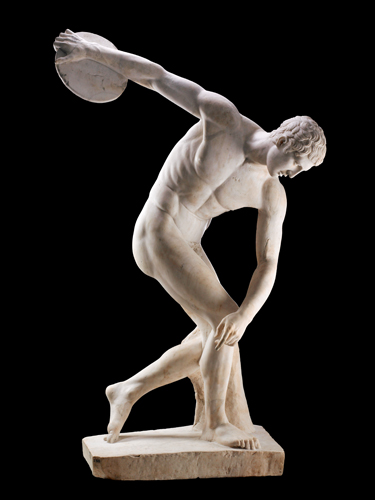 |
| What use was this thing? You can't really make anything with it or grow food on it, why did the Greeks love stuff like this so much? Simply because it's beautiful! |
I feel that the purpose of Peracles' oration was to lift the people he was addressing to a higher "greatness of soul", so that they would be inspired to do more virtuous or beautiful things. As Jessie and Joseph discussed, Peracles used wonderful epideictic oratory in order to praise Athens and the men who fell defending her; he employed masterfully the special topic of invention that Aristotle classified as virtue, or that which he believed to be beauty. Fortunately history provides us with perspective, and as Professor Burton pointed out in class, all of the things that Peracles stated became realities which have come to define the ancient Greek civilization. Aristotle, in this case, was right; a man who was known and trusted by his audience employed epideictic oratory in order to praise and inspire, and the people were inspired. This wasn't the only speech that inspired that ancient civilization, but it is a typifying example of one. If people trust you enough they'll believe what you say, your beliefs are your reality, a man who is trusted like Peracles can alter reality through rhetoric. (I don't know how sound that syllogism is, but I tried...)
That is quite the terrifying notion. It is true, but still just as frightening that manipulation of words and skilled use of rhetoric can alter another's perception of "truth." This is, perhaps, the reason why ideals, laws, and customs have changed over time. One loud voice backed by those entranced by its sound can lead to action, then to change. Much good can come about from this process, but it is this same concept that can create mobs seeking no beauty.
ReplyDeleteInteresting perspective on Pericles' ethos and nice syllogism! I actually discussed how I didn't think it was an epideictic piece because he was motivating them to action. You talked about them being "inspired to do more virtuous and beautiful things..." I think that he praised the audience and Athens to persuade them to continue to fight for their city and government.
ReplyDelete